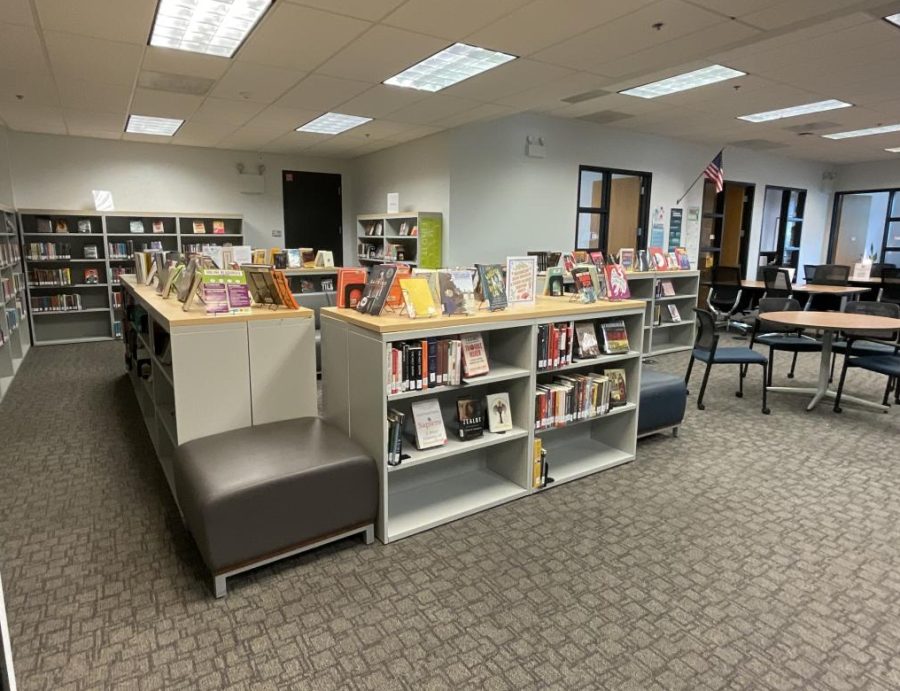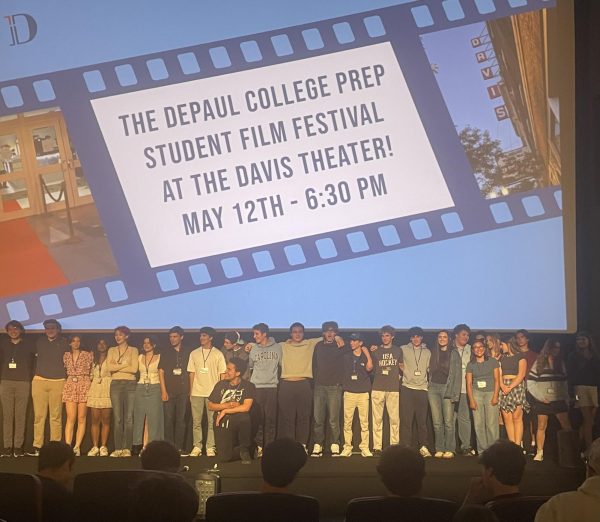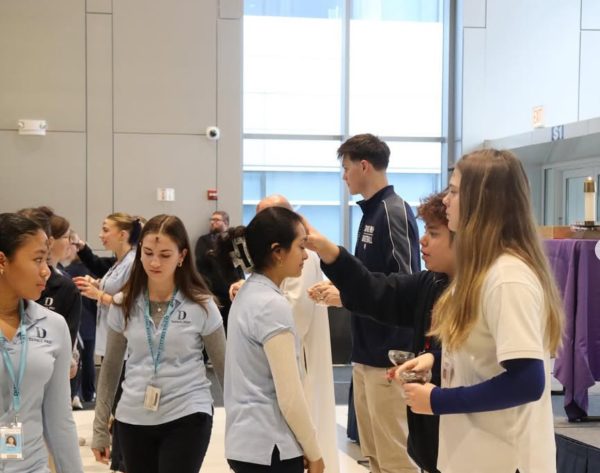DePaul Prep students share opinions on book bans ahead of new IL bill
Around the United States, some libraries and schools are withdrawing materials from their shelves, in response to requests and pressure from some parents and political groups. This action, dating back centuries, is known as a “book ban.” Illinois is soon to become the first U.S. state to prohibit the practice.
Sponsored by House member Anne Stava-Murray, State Representative of the 81st District, HB2789 strictly prohibits libraries in Illinois from withdrawing materials due to “partisan or doctrinal pressure.”
As stated in the bill’s synopsis, “…in order to be eligible for State grants, a public library or library system shall develop a written policy prohibiting the practice of banning books.”
The key component of this bill isn’t that it stops book bans completely, but that it requires libraries to adopt an anti-book banning policy. In time, if libraries were to refuse to adopt this type of policy, they would lose funding from the state.
However, book bans aren’t anything new.
Tony Powers, the librarian for DePaul College Prep, has 35 years of experience working in libraries, 33 of which were spent in the Chicago Public Library system. According to Powers, libraries and schools regularly face attempts to challenge books.
“Books have always been challenged,” Powers explained. “I think maybe the amount of challenges we’re seeing now are more than the past.”
Statistically speaking, this is true. According to the American Library Association, for the year of 2022, there were a total of 1,269 attempts to ban materials in libraries and schools. This is the highest number of attempts encountered in 20 years. Furthermore, the ALA recognized complaints about 2,571 books, which was a 1.4% increase compared to the previous year.
Powers believes the main reason for these complaints is because of how their content interacts with personal opinion.
“I think a lot of challenges have nothing to do with necessarily the quality of the literature,” Powers said. “I think there’s a huge, kind of political-behind-the-scenes concern that some people have.”
Paulina Morris, a junior at DePaul Prep, explained that parents and other outside adults may be concerned with students’ responses to a book, prompting them to want it banned.
“I think [books] are getting challenged just because certain individuals within a school or within the state find [books] influential to young teens.”
Junior McKenzie Kelly shared a similar perspective, adding that some adults “don’t want the kids acting on those ideas” they might read about.
DePaul College Prep has not received challenges to its book collection in the library. This may be due to how Powers forms the book collection, which is based on a combination of two factors: first, if it’s considered to be well written by professional critics and DePaul Prep faculty, and second, if students express interest in it. Powers also believes Chicago’s diversity may play a role in attitudes about books.
Freshman Maeve Ogren believes book bans affect students negatively because of the restrictions they impose.
“Book bans are unnecessary,” Ogren said. “[They] limit people’s knowledge. Instead, there should be a label.”
Sophomore Taylor Beck took a similar stance on the issue, sharing one of her friend’s comments about how book bans feel like a violation of a key part of the United States Constitution, the First Amendment.
Freshman Margo Vernon-Aldeen also views book bans negatively, but from a different angle. Using historical fiction and nonfiction books as examples, she explained that these types of books are supposed to evoke feelings that may be uncomfortable, which may lead to a ban. These feelings, however, are supposed to occur since these types of books are accounts of tragic events that evoke an emotional response.
Furthermore, some students have suggested that book bans might not be effective. With the rapid development of technology in the 21st century, it’s easier than ever for someone to access information outside of their library or school.
“I feel like people will always find a way to get around it if they really want to read,” Kelley said. “Those ideas [in banned books] are going to come out either way.”
Looking ahead, Bill HB 2789 has recently been passed by both the Illinois House of Representatives and the Senate. Currently, it sits with 20 sponsors from Illinois’ Senate, and 35 from the House. It was sent to Governor J.B. Pritzker on May 22nd, and now awaits for his approval.







Katie Hogan • Jun 2, 2023 at 09:14
Avery – well written article. I appreciated hearing about this bill, and I appreciate how our community supports our student’s right to read.